第101章 A HANDFUL OF HEATHER(14)
It is not half as far from Albany to Aberdeen as it is from New York to London. In fact, I venture to say that an American on foot will find himself less a foreigner in Scotland than in any other country in the Old World. There is something warm and hospitable--if he knew the language well enough he would call it couthy--in the greeting that he gets from the shepherd on the moor, and the conversation that he holds with the farmer's wife in the stone cottage, where he stops to ask for a drink of milk and a bit of oat-cake. He feels that there must be a drop of Scotch somewhere in his mingled blood, or at least that the texture of his thought and feelings has been partly woven on a Scottish loom--perhaps the Shorter Catechism, or Robert Burns's poems, or the romances of Sir Walter Scott. At all events, he is among a kindred and comprehending people. They do not speak English in the same way that he does--through the nose---but they think very much more in his mental dialect than the English do. They are independent and wide awake, curious and full of personal interest. The wayside mind in Inverness or Perth runs more to muscle and less to fat, has more active vanity and less passive pride, is more inquisitive and excitable and sympathetic--in short, to use a symbolist's description, it is more apt to be red-headed--than in Surrey or Somerset. Scotchmen ask more questions about America, but fewer foolish ones. You will never hear them inquiring whether there is any good bear-hunting in the neighbourhood of Boston, or whether Shakespeare is much read in the States. They have a healthy respect for our institutions, and have quite forgiven (if, indeed, they ever resented) that little affair in 1776. They are all born Liberals. When a Scotchman says he is a Conservative, it only means that he is a Liberal with hesitations.